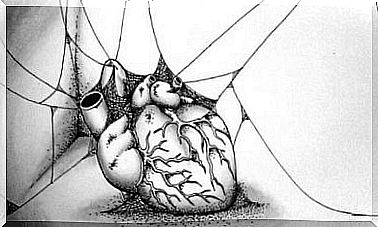The Story Of The Psychology Symbol (Ψ)
The story of the psychology symbol involves some mythology and the strange development of the term “psi” (Ψ). It is the 23rd letter of the Greek alphabet, and at one point the Romans transliterated it to form the word psyche. It means butterfly in Latin, but came to mean things like breeze, breath, energy and finally soul.
Everyone who has studied psychology will remember that the psychology symbol appeared almost everywhere. Books, in the professor’s office, fact sheets … Everyone who is curious about this branch of science will also recognize it, because it has become part of a symbolic culture that is common in other disciplines, such as philosophy and “phi” (Φ).
In ancient Greece, the word psyche meant butterfly. This insect was also the symbol of the breath of life, a breeze, a life-giving wind… Slowly but surely it ended with the word beginning to symbolize the human soul thanks to the influence of the Roman Empire. What they saw was a life force, also known as “ka” in Egyptian culture.
The Greeks and Romans had a very specific view of the soul when it came to people. One of their beliefs was that when someone died, the “ka” left the Egyptians talking about the body in the form of that breath. This breath took the form of a butterfly. There was nothing frightening about this image of the mind. For them, butterflies represented light, change and hope.
Thus, the symbol began to be associated with the term psyche. Later it became “logia” ( ψυχή and λογία). It is its etymological meaning over time changed from “science of the soul” to “science of the mind”. The symbol “Ψ” was used as its primary character, as an abbreviation.
In Greek mythology, the word “psyche” means more than just a butterfly, soul and mind. Psyche was also a goddess – a beautiful creature with butterfly wings. Her love story is one of the most beautiful that exists and was immortalized by Apuleius in The Golden Donkey.
According to the story, one of King Anatolia’s three daughters was really special. She was so thin, attractive and full of joy that Aphrodite herself became jealous and saw this young woman as her rival. She was so desperate that she immediately sent her son Eros (Cupid) to shoot her with her arrows. She wanted young Psyche to fall for the most horrific, ugly and heartless man in all of Anatolia.
But nothing went according to plan. Instead, it was her son who fell for Psyche. Unable to stop himself, the young god decided to go to her room every night to win her over. And so it became. Psyche fell head over heels for the stranger who visited her every night in the dark, even though she could not see his face.
But something went wrong. When Psyche told her sisters about it, they said she could not continue the relationship if she did not see the face of her mysterious lover. So that’s what she did. As Eros slept in her bed, she carried a lamp near his face. At that moment he woke up and stormed out, insane over what she had done.
Inconsolable, dejected, and remorseful, the daughter of Anatolia’s king went to Aphrodite to ask for help. Eros’ mother saw this as a chance to gain the upper hand; she saw it as a chance to get rid of this woman, whose beauty could measure up to her own.
She gave her four trials, four tasks to complete if she wanted Eros’ love and forgiveness. But the trials involved traveling to the underworld, meeting Kerberos, traveling with Charon and later meeting Hades to reach Persephone and ask her for some of her beauty, which she kept in a box.
Against everyone’s expectations, the witty Psyche showed that she was not only beautiful, but also smart, brave and full of determination. But just as she passed all the trials and had Persephone’s box, she was struck by a moment of vanity and curiosity. She decided to open the box and see what was inside, and take some of the beauty herself.
That’s when she fell victim to its trap: the ugly dream. Luckily, a familiar hand pulled away the cursed box. The familiar skin of the hand comforted her, and the hopeful face of its owner immediately gave her joy again. It was Eros who now forgave her and came to her rescue.
This magical couple could not have had a happier ending. Aphrodite stopped being jealous of her son’s lovers and danced with them at the wedding. Zeus decided to make Psyche immortal. Now this brave, beautiful woman with butterfly wings also represents the psychology symbol “Ψ”.









